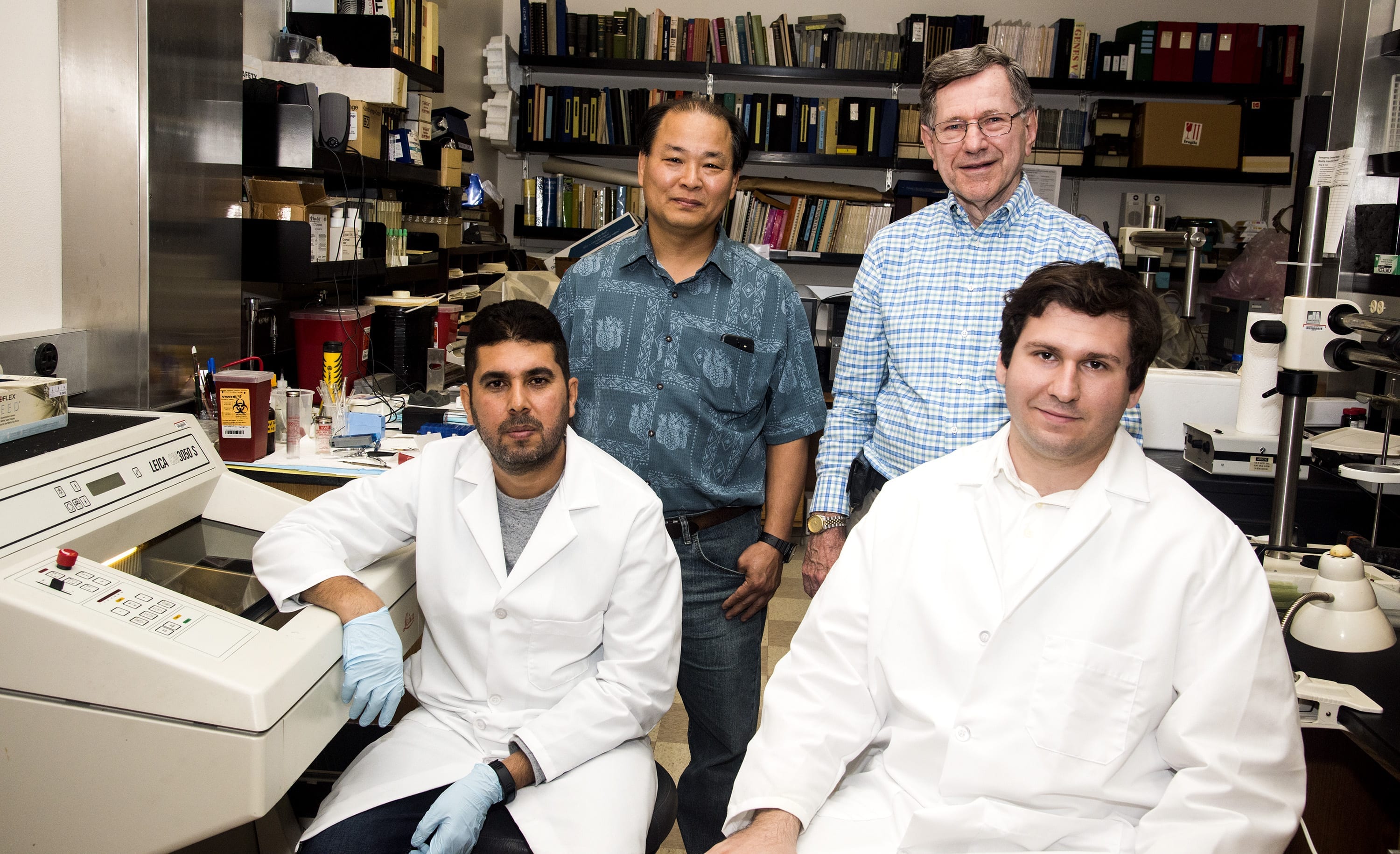Avian Neuroscientists Identify New Stress Response Component in Poultry Brain

The Problem
Stressed poultry tends to eat less, gain less weight and have health issues. Stressors can also affect the quality of the bird’s meat.
The Research
A better understanding of stress response pathways could help discover ways to alleviate such physiological stressors. That would help improve poultry welfare, health and may lead to improved meat quality for the poultry industry. Wayne Kuenzel, a Division of Agriculture poultry physiologist specializing in avian neuroendocrinology, and Gurueswar Nagarajan, a former Ph.D. student in Kuenzel’s lab, currently a postdoctoral researcher at the National Institute of Mental Health, Bethesda, MD, discovered a new structure containing stress neurons in the poultry brain. The newly discovered structure has a cluster of neurons that may be the starting point for some stress response signals. The stress-related neurons are located in the nucleus of the hippocampal commissure, a structure located in the septum, a brain region directly above the hypothalamus. Kuenzel is leading a research team investigating the hypothalamo-pituitary-adrenal axis, or HPA axis, one of at least four major, distinct neuroendocrine systems regulating vertebrate physiology and behavior. The HPA axis is a complex signaling pathway from the brain to the adrenal glands that control how animals, chickens, in this case, respond to stress. The communication flow goes both ways with both negative and positive feedbacks. Once the stress is removed, a signal is sent back to the hypothalamus to cease its response.
The Bottom Line
Research to understand the complexities of the neuroendocrine systems builds a base of knowledge upon which later scientists will be able to develop remedies to a chronic stress response. Supported by an Arkansas Biosciences Institute Grant.
The Researcher

Wayne J. Kuenzel
Poultry physiologist at the Poultry Center of Excellence since 2000.
Kuenzel earned his bachelor’s and master’s degrees in biology at Bucknell University and a Ph.D. in Zoology from the University of Georgia. Before his career in academia, he served as a captain in the US Army Medical Service Corps, teaching human anatomy and physiology and was Chief of the Basic Sciences Branch at the US Medical Field Service School, Fort Sam Houston, Texas. Research interests include neural regulation of early sexual maturation, broiler breeder reproductive behavior, and stress.
»
